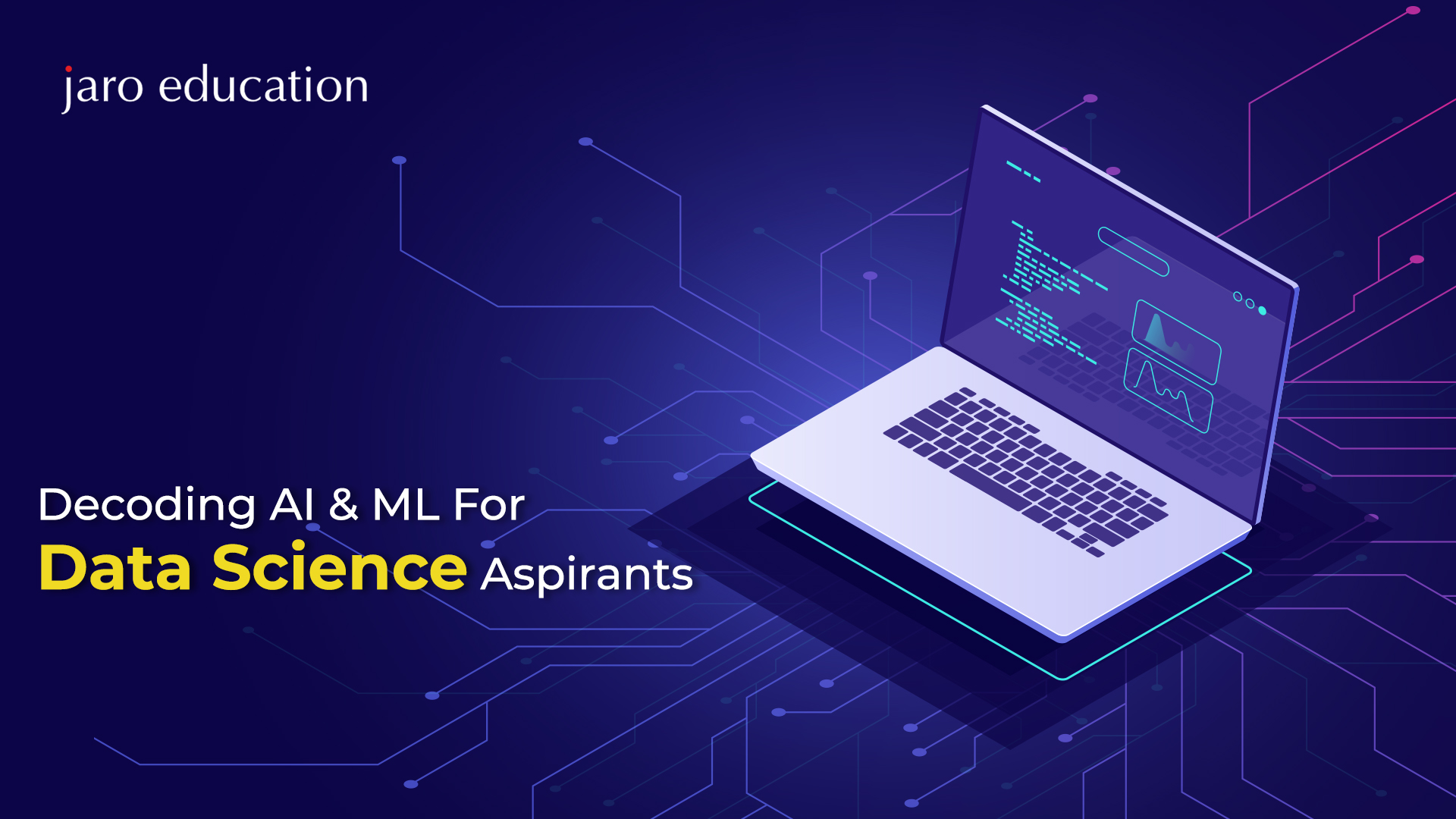
Decoding AI & ML For Data Science Aspirants
Before getting into the details, students can make a career out of AI and ML by getting a Data Analysis certificate or training in Data Science from Shiv Nadar University with their Data Science and Analytics for Business program.
Artificial Intelligence
Humans have been fascinated with automation since time immemorial, and anything which could replace monotony and repetition was welcomed with open hands. The advent of AI also began with automation, where less and less human intervention was required to carry out a task. AI can be said to be an extension of computer science and can be broadly classified into three categories:
-
- Artificial Narrow Intelligence: This is a goal-oriented program capable of a single task.
- Artificial General Intelligence: This allows the program or algorithm to behave so that it becomes indistinguishable from humans in certain specialized contexts.
- Artificial Super Intelligence: This is a hypothetical scenario wherein machines outpace the brightest humans on the planet.
Some Use Cases of Artificial Intelligence
When looking at cases of artificial intelligence, one is likely to see certain overlap with machine learning, but it becomes simpler to distinguish between the two:
-
- Robotics: Some may believe that AI only manifests as robotics. However, robotics is only one component of AI. Robots are used in the automotive, retail, and medical sector. Big e-commerce giants like Amazon are currently using industrial-grade robots for stacking and replenishing their shelves in their warehouses. Robots are being used to perform high-precision micro-surgeries on critical organs like the heart with minimally invasive procedures in the medical field.
- Education: The incorporation of technology has transformed education. We can see the spectacular growth of the “Ed-Tech” sector in transforming the lives of both the student and the teacher. From Smartboards to intelligent tutoring assistants to be perfect companions for children with special needs. AI is surely turning out to be the positive force that is likely to impact children in a big way.
- Chatbots: Almost every website we visit today comes with a chat service for answering simple FAQs – these are largely driven by chatbots. Next, AI has a significant role in providing purchase recommendations on e-commerce websites, and it does help online shoppers make informed choices. Lastly, chatbots can even set reminders about calendar events and appointments.
Machine Learning
Machine learning fundamentally utilizes the ” rote-learning ” function to make itself work. This involves learning techniques based on memorization and repetition. The understanding here is that the more a system is made familiar with a process, the higher is the likelihood of it learning and doing it by itself. Thus, consumption of content by the system is considered a crucial step in making ML work within a framework.
Due to the learning capacity, ML can be utilized for pattern recognition and prediction. As the algorithm grows in familiarity with the system and context, the chances of it acting flawlessly in anticipation of a future occurrence improve too.
Some Use Cases of Machine Learning
-
- Self-driving Cars: Here, ML algorithms use computer vision, neural networks, and AI to recognize the terrain, roads, and street signs. The algorithm even considers other cars, pedestrians, and other obstructions to be avoided.
- Facial Recognition: Biometric authentication is security and identification based on physical characteristics (eyes, fingerprints). Here, ML algorithms utilize their ability to recognize objects and patterns with the help of computer vision to recognize and authenticate physical characteristics.
- Targeted Advertisements: Anyone browsing online is consistently tracked by tech companies for demographics, interests, and preferences. Tech companies then process this data to serve personalized advertisements to the user. Some may find it amusing, while others may consider it an invasion of privacy. Thus, machine learning algorithms are the ones that are making this process a reality.
Final Thoughts
If you want to crack into the data science domain, then you would require a data science certification course or best course for data analytics at Shiv Nadar University with their Data Science and Analytics for Business. This course is meant to develop mastery in data sciences and machine learning to make you capable of solving the most complex business problems through advanced modeling and machine learning techniques. Learn More and get the details of the certification.
FAQ's
- The certification offered by Shiv Nadar University in Data Science and Analytics for Business starts from the ground up. It acquaints professionals with the fundamentals of data science before venturing into complex topics.
- Every company, big and small, is eager to transform their decision-making entirely driven by data. This gives data science courses tremendous scope in the job market.
- Some of the top job titles include Data Analyst, Data Engineer, Data Architect, Data Storyteller, Machine Learning Scientist, Machine Learning Engineer, and Business Intelligence Developer.
- The best career path for a data science enthusiast is to learn as much as possible early in their career and settle down in a large, well-established organization at the mid-career level till retirement.

